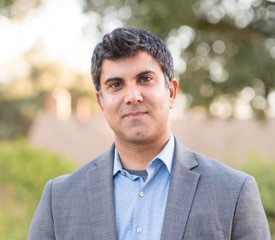Speaker Series: Riaz Tejani

Law and Society scholars often dismiss Law and Economics as insoluble with their core beliefs on distributive justice, culture, and social solidarity. This has allowed us to overlook between the fields, and to miss opportunity for new theory generated in those spaces. One such opportunity came in 1978, when Guido Calabresi and Philip Bobbitt argued that societies make “tragic choices” about scarce resource allocations in a way that seeks to reconcile such choices with core culture, ethics, and values. In Calabresi’s later words, that book was an “explicit appeal to Anthropology.” In 2016, he renewed this call by arguing that the Future of Law and Economics will require better investigation of the interplay between cultural tastes on one hand and economic rationalisms on the other. After forty-plus years, sociolegal studies remains poised to help with this more nuanced account, provided we can find common ground with Law and Economics in our uses of language, method, and interpretive theory.
A step in that direction, this article is an intellectual history inspired by new ethnographic data gathered among lawyer-economists. Using “tragic choices” as an example, it argues that Law and Society’s intellectual commitments sit closer to Law and Economics than usually understood, and that we should finally grapple with Calabresi’s invite. It concludes by offering a framework for those interested in doing so today.
_____________________________________________________________________________________
Riaz Tejani is Associate Professor of Business Ethics at University of Redlands. His work investigates the interaction of legal and business ethics with special interests in race and class inequality, distributive justice, and cultures of economic rationality.
His first book, Law Mart: Justice, Access, and For-Profit Law Schools (Stanford, 2017), is an ethnographic account of for-profit legal education during and after the global financial crisis. His second book, Law and Society Today (University of California, 2019), critically surveys contemporary themes in socio-legal studies after “law and economics”. Riaz is Co-director of the Law and Society Association’s CRN 28 on New Legal Realism, and a member of the board of conveners for the Law and Humanities Junior Scholars Workshop.
Riaz’ work has been cited or reviewed in venues that include the Harvard Law Review, Yale Law Journal Forum, Annual Review of Law and Social Science, The Nation, Huffington Post, Salon, and NPR. He holds a PhD in social anthropology from Princeton University and a JD from the USC Gould School of Law, where he was a Fellow at the Center for Law, History, and Culture. Before joining the School of Business, Riaz was on faculty at the University of Illinois – Springfield where, in 2017, he was a recipient of the Outstanding Faculty Award for teaching. In 2020, for his work on law and marketization, he was awarded the University of Redlands’ Outstanding Faculty Award for research.

